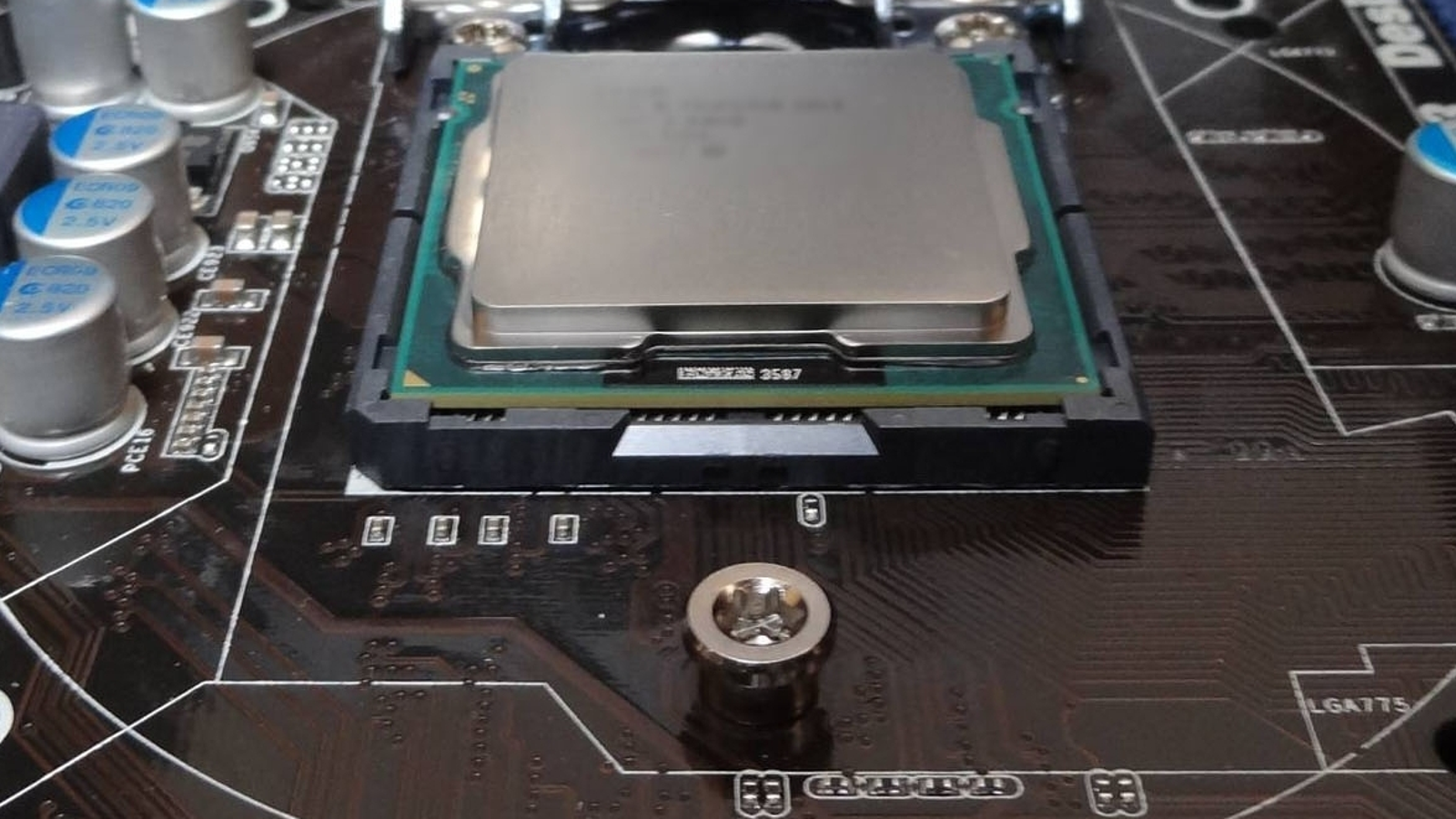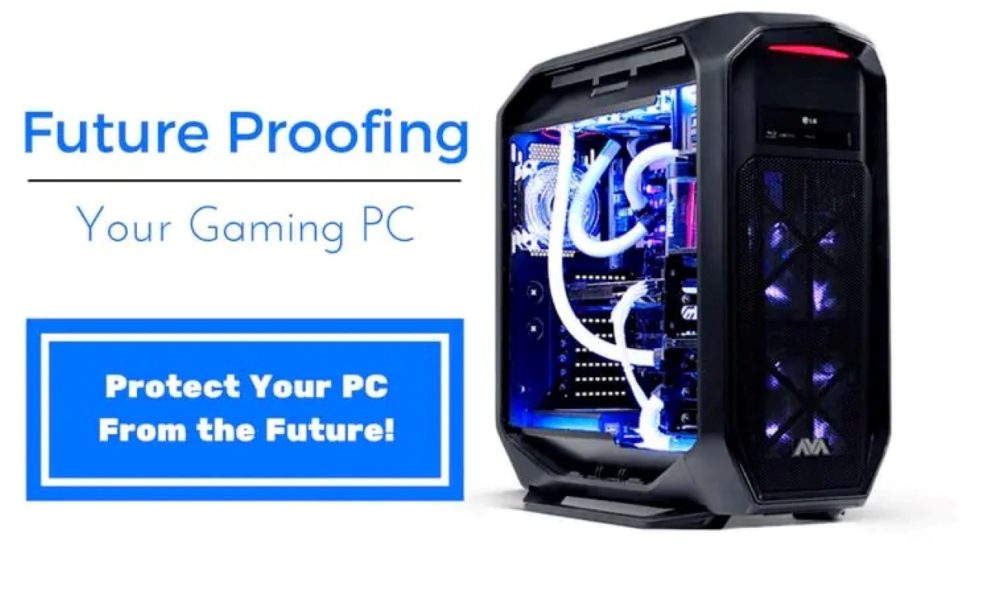Building or upgrading your gaming PC to stay relevant for future game releases can seem daunting. As graphics, processors, RAM and other components rapidly advance, it’s tricky to create a system that won’t become obsolete in just a couple of years.
While no PC can stay cutting-edge forever, you can apply some smart strategies to maximize your setup’s longevity and readiness for next-gen gaming with a few key part choices and upgrade considerations.
This guide will cover practical tips on selecting components like your CPU, GPU, RAM, storage, cooling and more to build a gaming PC that won’t get left behind too quickly.
Choose a Future-Ready PC Case
The foundation of any good future-proof gaming PC starts with choosing the right PC case. You’ll want one that not only looks great with features like RGB lighting and tempered glass panels, but also offers ample room for growth.
Prioritize full ATX or mid-tower PC cases that can fit extended video cards up to 380mm, large CPU coolers and multiple case fans for airflow. This gives you breathing room to install beefier next generation GPUs and cooling as you upgrade down the line.
Additionally, look for a modular case that allows flexible storage mounting options for 3.5″ HDDs and 2.5″ SSDs. Support for vertical GPU mounting can also come in handy for showing off your graphics card as the centerpiece of your build through a tempered glass side panel.
Top Case Recommendations
- Corsair 5000D Airflow
- Lian Li Lancool II Mesh
- Fractal Design Meshify 2
Select a Future-Ready Motherboard
Finding a motherboard with an upgrade path for next-gen CPUs can extend your build’s useful lifespan by several years. The key specification to evaluate is the socket type.
For Intel-based gaming PC builds, choose a motherboard with the current LGA 1700 socket to allow dropping in upgraded 12th or 13th gen Core processors for several upgrade cycles.
On the AMD side, look for motherboards featuring the AM5 socket for Ryzen 7000 series support. The AM5 socket will remain relevant for even Ryzen 8000 and 9000 series chips down the line.
Additionally, prioritize motherboards with robust power circuitry to supply stable power for overclocking beefy components. The latest connectivity like PCIe Gen 5 can better handle blazing fast next-gen GPUs and SSDs as well.
Top Motherboard Recommendations
- MSI MPG X670E Carbon WiFi
- Gigabyte Z790 AORUS Elite AX
- Asus ROG Strix X570-E Gaming
Invest in a High-End Processor
The CPU serves as the brains of your gaming rig, so buying the best model within your budget is critical for longevity. While opting for an inexpensive processor may save you money up front, it likely won’t age as gracefully.
Aim for a mid-range to high-end CPU like the AMD Ryzen 7 7700X or Intel Core i7-13700K. These pack excellent single and multi-threaded performance to smoothly handle demanding games now and for years to come thanks to their high core and thread counts.
Additionally, consider that higher core count processors hold their value better on the used market when you eventually elect to upgrade. This can help offset costs of your next-gen CPU purchase.
Top CPU Recommendations
- AMD Ryzen 9 7950X
- Intel Core i9-13900K
- AMD Ryzen 7 7700X
Don’t Skimp on the RAM
Having an adequate RAM capacity prevents system bottlenecking as games and background processes fight for memory access. More RAM overhead means smoother overall system performance.
For future proof gaming builds, 16GB of RAM should be the minimum, with 32GB strongly recommended. Opting for higher density DIMMs leaves room for further expanding capacity later.

Also pay attention to RAM speed. DDR5 memory delivers notable improvements in bandwidth and power efficiency. Aim for DDR5-5200 or better to fully leverage performance gains.
Higher frequency RAM like DDR5-6400 offers slight performance benefits in some games but costs substantially more. Consider whether paying extra for top-tier memory is worthwhile or if funds are better allocated to the GPU first.
Top RAM Recommendations
- Corsair Dominator Platinum RGB 32GB DDR5-5600
- G.Skill Trident Z5 Neo 32GB DDR5-6000
- Kingston Fury Beast RGB 16GB DDR5-5200
Install a High Speed PCIe 4.0 SSD
To fully enjoy next-gen games and eliminate load time frustrations, a blazing fast NVMe solid state drive is essential. While SATA SSDs are certainly faster than old school hard disk drives, only PCI Express based SSDs offer sufficient bandwidth for future proof gaming PCs.
Top contenders like the WD Black SN850 can reach blistering sequential read speeds beyond 7,000 MB/s. For comparison, even high performance SATA SSDs max out around 500-550 MB/s reads.
Choose an SSD from a reputable brand that delivers excellent sustained write performance in addition to headline grabbing read speeds. This prevents the SSD from getting bogged down during intense game file transfers and installs.
Also ensure your SSD offers generous storage space for your game library. Popular capacities are 1TB or 2TB, with the 2TB option providing ample room for the future.
Top SSD Recommendations
- Samsung 980 Pro 2TB
- WD Black SN850X 1TB
- Seagate FireCuda 530 1TB
Pick a Mid-Range GPU
Upgrading your graphics card can provide the biggest performance lift for gaming, but chasing the top-end GPU can be an expensive gamble.
High-end flagship video cards certainly deliver excellent performance, but also command eye-watering prices. Additionally, they tend to get replaced rather quickly by next generation offerings once again leaving your wallet empty.
A smarter approach is choosing a mid-range GPU. Options like the Nvidia RTX 3070 Ti or AMD Radeon RX 6800 XT offer outstanding 1080p and 1440p gaming that should remain capable for new game releases over the next several years.
Additionally, their more reasonable prices creates less remorse if upgrading again shortly. Consider the total lifespan value rather than fixating solely on initial cost.
Of course, you can still drool over an RTX 4090. Just make sure you’re objective about your actual gaming needs versus wants when allocating budget to components.
Top GPU Recommendations
- Nvidia GeForce RTX 3080 12GB
- AMD Radeon RX 6800 XT
- Nvidia GeForce RTX 3070 Ti
Don’t Skimp On Your Power Supply
The power supply serves as the often under-appreciated heartbeat of any gaming PC. Unfortunately, builders commonly cut corners choosing low-quality PSUs to save money for flashier parts.
While unseen, the consequences of a failing PSU can be catastrophic to your entire system – especially expensive components like GPUs and CPUs.
Ensuring your gaming rig receives stable, clean power should be a top priority. Look for 80 Plus Gold certified power supplies from reputable manufacturers like Corsair, EVGA and Seasonic.
When spec’ing your wattage, leave ample overhead even if it seems excessive for your current build. Power demands can spike with future upgrades, so having extra cushion prevents hitting the PSU’s peak capacity.
For most high performance gaming PCs, quality 850W models provide a sensible sweet spot between price and future proofing capacity.
Top PSU Recommendations
- Corsair RM850x
- EVGA SuperNOVA 850 GT
- Seasonic Focus GX-850
Don’t Forget Adequate Cooling
Effective cooling plays a pivotal role enabling sustainable peak gaming performance. Even quality components will throttle speeds to avoid overheating damage.
Start your cooling considerations with the CPU. Large tower air coolers or all-in-one liquid coolers from trusted brands like Noctua, be quiet!, Corsair and NZXT can effectively dissipate heat from your processor.
Pay special attention to GPU cooling as well. Models using beefier heatsinks, multiple fans and vapor chambers sustain higher boost clocks. Prioritize video cards with excellent thermal capacity if aiming for future overclocking.
Lastly, ensure your PC case offers sufficient airflow. Look for mesh front panel designs that don’t obstruct intake fans. Populating all available fan mounts also enables excellent front-to-back cooling airflow across internal components.
Top Cooling Recommendations
- Noctua NH-D15 chromax.black
- Corsair iCUE H150i ELITE LCD
- Corsair 5000D Airflow Case Fans
Future Proofing Your Gaming PC is About Balance
Constructing a future-ready gaming PC capable of playing new titles for years requires carefully weighing strengths and limitations of components – and managing expectations.
Rather than overspending on parts primed to become obsolete, focus budget on elements delivering the best cost versus longevity like CPUs, RAM capacity and storage. Then complement them with mid-range GPUs offering great short term performance with likely upgrade paths.
Additionally, leave room to scale up components like cooling and power supplies to support future hardware.
No gaming PC can stay cutting edge indefinitely. But by making informed choices on key components and avoiding overspending on rapidly advancing tech, you can maximize useful lifespan and enjoy next-gen gaming innovations as they emerge.
















Add Comment